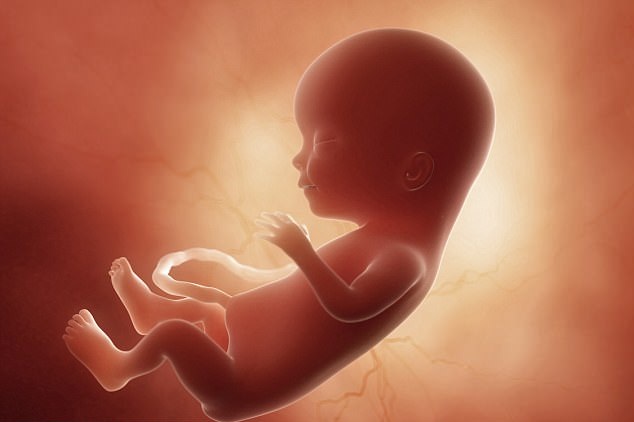Fetuses can distinguish between someone speaking to them in English and Japanese one month before they are born, researchers have found, according to Daily Mail.
Fetuses can hear things in the womb, including speech – although it’s muffled.
But they can still perceive the rhythm of a language, and the study suggests that fetuses discriminate between different types of language based on rhythmic patterns.
The study conducted by researchers, has implications for fetal research in other fields, says the lead author.
‘Research suggests that human language development may start really early – a few days after birth,’ said Dr Utako Minai, associate professor of linguistics and the team leader on the study.
‘This early discrimination led us to wonder when children’s sensitivity to the rhythmic properties of language emerges, including whether it may in fact emerge before birth.
‘Fetuses can hear things, including speech, in the womb.
‘It’s muffled, like the adults talking in a “Peanuts” cartoon, but the rhythm of the language should be preserved and available for the fetus to hear, even though the speech is muffled.’
While there have already been studies that suggest fetuses can discriminate between different types of languages, based on rhythmic patterns, Dr Minai said that none of these studies used a more accurate device called a magnetocardiogram (MCG).
A magnetocardiogram measures the magnetic field produced by electrical activity in the heart.
‘The previous study used ultrasound to see whether fetuses recognized changes in language by measuring changes in fetal heart rate,’ Dr Minai explained.
‘The speech sounds that were presented to the fetus in the two different languages were spoken by two different people in that study.
‘They found that the fetuses were sensitive to the change in speech sounds, but it was not clear if the fetuses were sensitive to the differences in language or the differences in speaker, so we wanted to control for that factor by having the speech sounds in the two languages spoken by the same person.
So to conduct the study, the researchers analyzed 24 eight-month pregnant women using a magnetocardiogram.
‘We have one of two dedicated fetal biomagnetometers,’ said Dr Kathleen Gustafson, a professor a co-author of the study.
‘It fits over the maternal abdomen and detects tiny magnetic fields that surround electrical currents from the maternal and fetal bodies.’
The machine detects heartbeats, breathing and other body movements.
According to Dr Gustafson, the biomagnetometer is more sensitive than ultrasound to the beat-to-beat changes in heart rate.
Obviously, the heart doesn’t hear, so if the baby responds to the language change by altering heart rate, the response would be directed by the brain,’ said Dr Gustafson, and this is what the study found.
Dr Gustafson says that the fetal brain is developing rapidly and forming networks, and that the womb is a noisy place.
The fetus can hear maternal gut sounds as well as her heartbeat and voice, and outside sounds.
‘Without exposure to sound, the auditory cortex wouldn’t get enough stimulation to develop properly,’ said Dr Gustafson.
‘This study gives evidence that some of that development is linked to language.’
The researchers had a bilingual speaker make two different recordings to be played back successively to the fetus.
The researchers found that the fetuses heart rates changed when they heard the unfamiliar language (Japanese) after having heard English speech.
Their heart rates didn’t change when they were presented with a second passage of English instead of Japanese.
The results came out nicely, with strong statistical support,’ Dr Minai said.
‘These results suggest that language development may indeed start in utero.
‘Fetuses are tuning their ears to the language they are going to acquire even before they are born, based on the speech signals available to them in utero.
‘Pre-natal sensitivity to the rhythmic properties of language may provide children with one of the very first building blocks in acquiring language.
‘We think it is an extremely exciting finding for basic science research on language.
‘We can also see the potential for this finding to apply to other fields.’
N.H.Kh

